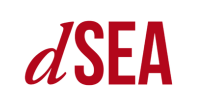"The economics of platform liability"
Should regulators hold digital platforms accountable for illegal behaviors of their users?
In a new paper, published in the European Journal of Law and Economics, Yassine Lefouili from the Toulouse School of Economics and Leonardo Madio from the Department of Economics and Management of the University of Padova, try to answer this question and provide a novel analysis of the intended and unintended effects of platform liability that policymakers should account for.
In the last decades, online misbehavior has proliferated, taking different forms. For example, in e-commerce platforms, some sellers may sell counterfeit goods, while in hosting, messaging, and video-sharing platforms, users might post and share illegal material, such as terrorist propaganda or copyrighted content. In social media platforms, user-generated content that features hate speech and questionable material might create societal externalities.
Currently, platforms benefit, to some extent, from legal immunity and are not considered liable for the misbehaviors’ by its users. Due to the large scale of their activity, policymakers worldwide have only recently begun to address platform liability problems.
The paper provides a novel analysis of the incentives of online platforms to engage in self-regulatory conduct and the economic effects of introducing more stringent platform liability on the most critical economic decisions, such as those related to pricing strategies, terms and conditions, business models, and investments. The analysis raises awareness of the importance of considering that platforms might react to a change in the liability regime by re-optimizing their strategies.
Read the full article here: https://unipd.link/Paper_Madio_Plaform_Liability





